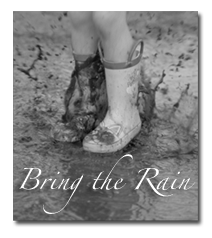During the Advent season, we spend the weeks prior to Christmas waiting and preparing. It is a time to prepare ourselves for the coming of Jesus Christ. In Luke, we hear the Isaiah passage recalled that says “prepare the way of the Lord, make his paths straight”. It is here in Luke that we are able to see the fulfillment of this passage.
We learn that the voice in the wilderness is that of John the Baptist. Throughout the gospel, we discover John to be a man who many would not want to be around. He has been living in the wilderness throughout his adult life, eating locusts, running around in camel hair and a leather belt, most likely rarely bathing. His proclamation of God’s Word was not in the soft sweet voices we are so use to hearing on television or in church. He had a temper and was known to go around telling people how he saw it.
Despite all that would make John despicable to most, he was the one God has chosen to get the world ready for the coming Messiah. We are told that the “Word of God came to John”, just as it had to Abraham, Samuel, Nathan, Elijah, and Jeremiah. This divine message is bearing good news to all people. It is a message to awaken people to prepare themselves and each other for the coming Messiah.
John was given the task of preparing the hearts of the people through his preaching, which included a call to a baptism of repentance for the forgiveness of sins. John’s baptism was done as a way of putting one on God’s side. To refuse to repent and be baptized by water was viewed as rejecting God, even for those who led good, obedient lives. John knew this baptism was merely a preparatory one, one of repentance, and that Jesus would soon bring a baptism of the Holy Spirit.
The word repentance means to make a change in one’s mind or thinking. As God was using John the Baptist to prepare the hearts of all for the coming Messiah, he was calling for people to change how they perceived God and their relation to him. Through the Messiah, they would see God in a whole new light, in human flesh. It would no longer be a God who seemed far off, but one walking side by side with them. Soon, the way they related to God would be completely different then they had ever known, because the Messiah would come, not as the warrior many expected, but as a small child. Jesus would change the way people were to relate to God through his life, teachings, death and resurrection. Those who would follow the Messiah would find themselves changing their way of thinking. They would repent.
Over the last eight or so years, I have spent my summers as a either a pre-school teacher or nanny in someone’s home. These experiences have offered me many opportunities to observe the exuberance of the average three year old as they strive to discover their independence.
As most parents and preschool teachers can attest to, three years olds LOVE to do absolutely everything on their own. “I can do it by myself” is their favorite phrase. I can picture many past moments where I watched as one of my preschoolers eagerly grabbed the plates and silverware to set the table for our class lunch, throwing up a hand anytime I came near to help shouting, “NO! I can do it!” Picturing what I knew would be an on-coming disaster when they tried to set the pitcher of milk on the table, I would stand there and cringe. Then, moments later, I would be at the table trying to clean up the spilt milk with a huddle of three year olds screaming “I can do it!”
I use this example as I think it strongly relates to our relationship with God. So often in life, we view ourselves as being the ones who can change our situation. We hold onto the reigns of our life and circumstances, unwilling to change our way of thinking unless it fits what we think must happen. Just like the three year old, we believe we can set the table all by ourselves, when in reality the task at hand is too big, and our hands are just too small to hold the pitcher without losing our grip.
The repentance we are called to is not one that does not seek outside help. The call is to move beyond the thinking “I can do it all by myself” and into “I can’t do it all by myself.” We need Christ because without him we are merely sinful human beings, wallowing in hopelessness and despair, attempting to break free without success. Through him, we are forgiven and cleansed of all unrighteousness, something we have no power to do on our own. Anytime sin is spoken of in the gospel of Luke, we hear the offer of forgiveness. Through Christ, sin and forgiveness cannot be separated. In those moments where our thinking switches back to thinking we can do it on our own, the love and forgiveness given to us in Jesus is there, offered to us as a free gift.
The fulfillment of the Isaiah passage recalled in Luke does not end at the call to prepare ourselves for the coming Messiah. It goes beyond this and moves into the promise that every valley will be filled, mountains will be made low, the crooked paths made straight and the rough ways made smooth. It is here that we learn how the world changes through the coming of the Messiah. It is thought that the meaning of this passage is one of equality.
The world we live in today is still imprisoned with so many barriers. We do not live in a culture free from inequality. There are still separations based on race, economic standing, marital status, age, and even sexual orientation which place us in our different categories. Our world offers us opportunity upon opportunity to separate ourselves from others. Yet, Christ came to change all of this. The message given to us is not one of the rich become poor and the poor become rich, but one where the rich and poor meet in the middle. It is no longer slave and free, male and female, Jew and Gentile. Through Christ we are all made equals and the gift of salvation is given to all.
The last line of the call John the Baptist is making states, “and all flesh shall see the salvation of God.” One might ask, however, where is the salvation of God? How can we possibly have seen it when our world still seems turned upside down? The salvation of God is seen in Jesus. In the Gospels, we hear of how when Simeon saw the infant Jesus, his thinking about death changed. When Jesus came to his home, Zaccheus stated “today salvation has come to this house”. As a result his thinking about wealth changed. When we change our thinking, when we repent, we see the salvation of God. We recognize that Jesus is the one who offers us, each and every one of us, grace and forgiveness. He is salvation, come to us in the form of a child.
No, our world is not perfect. It may seem the crooked paths are still crooked. The mountains are still impossibly high and the rough ways continue to get rougher. Neighbors still hate neighbors, segregation is still alive and well, and wars continue to grow stronger by the moment. Yet, the world is not what we judge God’s salvation by. Salvation is not seen in the diagnosis of cancer. It is not seen on the streets of Iraq. It is seen in the eyes of a child, born in a manger for our sake. It is seen in the eyes of the Messiah. So, let us look not to ourselves when looking for a smooth path, for we cannot create one on our own. Let us repent, change our thinking, and pass the pitcher of milk to the one who is given for our sake who will make the path smooth for us. Amen
Monday, December 11, 2006
Subscribe to:
Comments (Atom)











